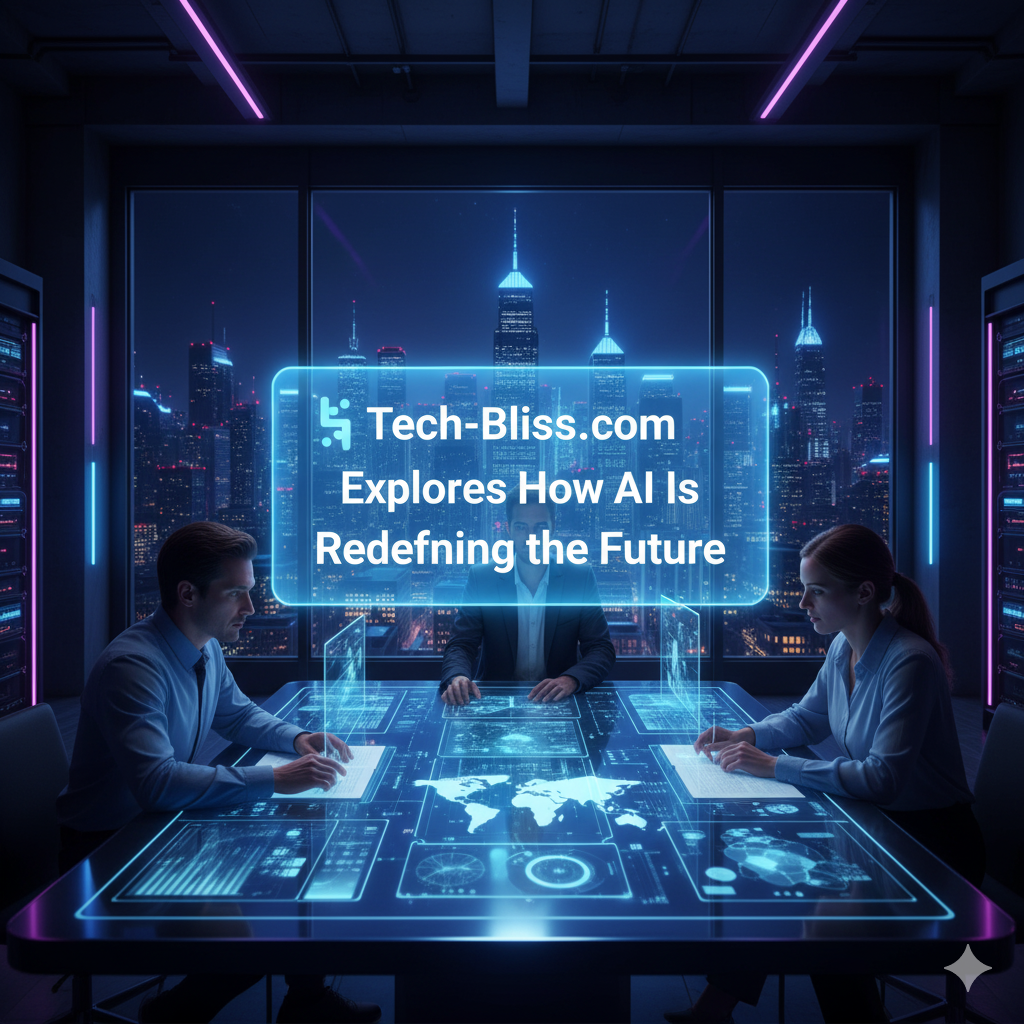Artificial Intelligence (AI) has rapidly moved from the realm of science fiction into everyday reality. From self-driving cars to intelligent chatbots, AI has redefined how we live, work, and communicate. As this digital revolution continues to evolve, https//tech-bliss.com explores how AI is shaping the future of industries, societies, and individual lifestyles.
Understanding the AI Revolution
AI is not a single technology but a collection of systems designed to replicate human intelligence. It includes machine learning, natural language processing, computer vision, and robotics — all working together to make machines smarter and more adaptive.
According to Tech-Bliss.com, the AI revolution represents more than just technological advancement; it marks a profound shift in how humans interact with machines. The ability of computers to learn from data and improve over time allows for unprecedented innovation across multiple sectors.
Today, algorithms can predict market trends, recommend music playlists, diagnose diseases, and even compose art. This growing integration of AI demonstrates that the future will not be defined by replacing humans but by enhancing human capabilities.
AI in Everyday Life
AI’s presence can be felt in almost every aspect of modern living. Whether it’s asking virtual assistants like Alexa or Google Assistant for the weather, or relying on AI-driven navigation to avoid traffic, these technologies simplify our daily routines.
Tech-Bliss.com highlights that AI’s true potential lies in personalisation. Streaming platforms like Netflix and Spotify use AI to analyse user preferences, offering tailored recommendations that improve user experience. E-commerce giants employ similar technology to predict what customers might buy next, creating a more intuitive shopping environment.
Even healthcare applications are evolving rapidly. Smartwatches now track heart rates, oxygen levels, and sleep cycles using AI algorithms, enabling early detection of potential health issues. These innovations show that AI isn’t just a tool — it’s becoming a companion in our personal and professional lives.
Transforming Industries with Intelligence
AI is revolutionising industries on a global scale. Sectors such as finance, transport, healthcare, and manufacturing are being reshaped by intelligent automation.
In healthcare, for instance, AI-powered systems are capable of detecting diseases faster and more accurately than ever before. From analysing X-rays to predicting patient outcomes, these systems save both time and lives. In finance, AI assists banks in fraud detection and risk analysis, ensuring transactions are more secure and efficient.
Tech-Bliss.com reports that automation is also driving major shifts in logistics and supply chains. Drones, robotic warehouses, and predictive analytics are making global trade faster and more sustainable. Meanwhile, creative industries are experimenting with AI-generated art, music, and storytelling, showcasing the blend of human imagination and machine learning.
AI and the Workforce of Tomorrow
One of the most debated topics surrounding AI is its impact on jobs. While some fear that automation could replace human labour, experts argue that it will instead redefine roles and create new opportunities.
According to Tech-Bliss.com, the key lies in adaptability. As repetitive tasks become automated, employees can focus on areas that require creativity, emotional intelligence, and strategic thinking — qualities machines cannot replicate.
For instance, AI may handle administrative work or data entry, but it cannot replace the empathy of a doctor, the imagination of a designer, or the leadership of a manager. Moreover, the rise of AI has given birth to entirely new fields, such as data science, AI ethics, and algorithm engineering. These are career paths that did not exist a decade ago.
Education systems are also evolving to meet this demand. Schools and universities are integrating coding, robotics, and AI ethics into their curricula, preparing the next generation for a tech-driven workforce.
Ethical Challenges in an Intelligent World
Despite its benefits, AI also presents complex ethical challenges. Issues such as data privacy, algorithmic bias, and surveillance raise important questions about trust and fairness in technology.
https//tech-bliss.com emphasises that ethical development must go hand in hand with innovation. AI systems should be transparent, accountable, and free from discrimination. As governments and companies race to harness AI’s power, policies must be established to protect individual rights and prevent misuse.
For example, when AI is used in hiring processes, it must ensure fair treatment regardless of gender, race, or background. Similarly, AI used in law enforcement should be carefully monitored to prevent wrongful profiling. Building ethical frameworks will ensure that AI benefits everyone — not just a select few.
AI’s Role in Building a Sustainable Future
Beyond economics and convenience, AI is emerging as a powerful ally in the fight against climate change. Predictive analytics help monitor environmental changes, optimise energy use, and reduce waste in production.
https//tech-bliss.com has featured numerous examples where AI-driven technologies are aiding conservation efforts — from tracking endangered species to forecasting extreme weather patterns. By making systems more efficient and data-driven, AI is proving essential in building a sustainable and resilient planet.
The Road Ahead
The journey of Artificial Intelligence is still in its early stages, but its influence is undeniable. With each passing year, AI becomes more integrated into our daily experiences, shaping a future that is smarter, faster, and more connected.
As Tech-Bliss.com continues to explore the advancements in AI, one thing becomes clear — the relationship between humans and machines will only deepen. The challenge ahead lies not in stopping innovation but in guiding it responsibly. The future of AI is not about replacing us but empowering us to reach new heights of creativity, intelligence, and understanding.
Conclusion
Artificial Intelligence is redefining the world we live in, transforming industries, and enhancing everyday life. With platforms like https//tech-bliss.com leading the conversation, readers can stay informed about how this technology is shaping the future. As society stands on the edge of the next great digital transformation, one thing is certain: AI is not just changing the future — it is the future.




Comments are closed.